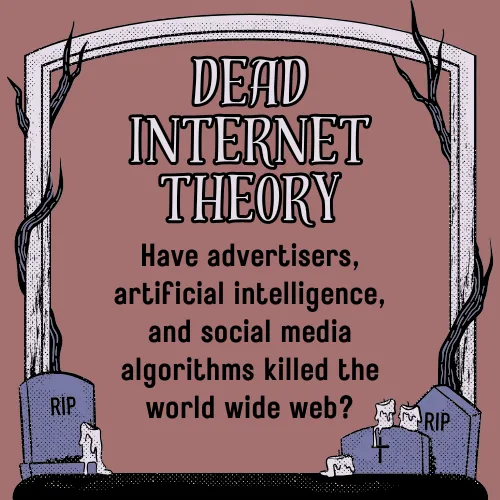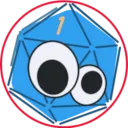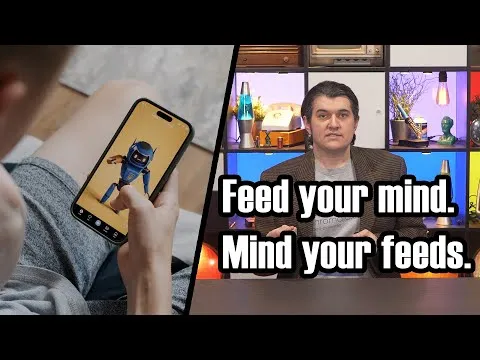
It's been well over a decade since I noticed something was amiss online. Neither Hive nor its predecessor existed yet. Web2.0 juggernauts Twitter and Facebook had not yet approached the levels of censorship to come, but something was already shifting behind the scenes. Clickbait grew more frequent. I saw independent sites getting bought up by holding companies, and/or start shoveling out filler so they could sell clicks to advertisers. Then Facebook and Twitter started selling more and more ad space. YouTube added more ads and also started cracking down on creators for doing innocuous things.
It was around this time when someone on 4chan suggested Dead Internet Theory: Most of the Internet is Fake. I didn't see it at the time, but it's clear my impressions were also being considered by even the internet anons.
The Internet feels empty and devoid of people. It is also devoid of content. Compared to the Internet of say 2007 (and beyond) the Internet of today is entirely sterile. There is nowhere to go and nothing to do, see, read or experience anymore.
Anons being anons, it's a bit over the top and you're never really sure whether you're being trolled, but there is at least a germ of truth there. Everything grew generic even before COVID and its accompanying censorship. Bots proliferated in comments. People bought followers created en masse overseas in digital sweatshops. Accounts were created simply to shill products by pretending to be an organic consumer base.
And this was all before generative AI flooded the web. Algorithms in social media had already started transforming how we experience media on Web2.0. Once upon a time, you saw a roughly chronological feed of posts from people you followed. Now, the Facebook feed is roughly as follows:
- Ad
- Your friends like this content, so we'll show it to you!
- Sponsored post
- Random content the algorithm thinks you'll like
- Ad
- An event announcement 2 weeks out of date for some reason
- Remember this from 5 years ago?
- Something from someone you actually follow
- Ad
Meanwhile, everything you do is analyzed and catalogued and used to turn you into ad revenue. You're not a user or a customer, you're a resource. Human contact and real communication is scrubbed away to be replaced with curated feeds some server chose for you, and echo chambers of rage which generate "interaction."
One of the things I hate is the algorithm feed of short videos. Its fun for a while, but it's designed to suck you in and keep you scrolling for moments of mild amusement punctuated by ads and irrelevance.
In the video above, the host describe show much he likes BlueSky and Mastodon allow the user to curate their own feeds. Crazy, right? But those are still corporate centralized platforms. HIVE is decentralized, and thus resistant to single points of failure. HIVE is also owned by its account holders, Sure, the whales can create problems, but they know if they do something dumb, the value of their tokens joins the morass of forgotten altcoins.
If you hold Hive Power, You own part of Hive itself. That means you have true ownership of your content and a real claim in owning the blockchain itself. That's why voting for witnesses matters much more than your vote in modern democratic governments. You also have a responsibility to help keep the bots, A.I. spam, plagiarists, and abusers in check. I recently wrote about Identifying and Addressing Spam.
We also have a community which generally encourages positive engagement as people share everything from ideas to practical skills to glimpses into their lives. It's an amazing project where we can still nurture human connection. Make comments and build conversations!
Is the internet dead? No. Hive is alive, and we can be one of the remnants no matter how Web2.0 devolves. But we also need to prune some dead stuff here. Use that downvote button when you see the eerie emergence of zombie internet here.

